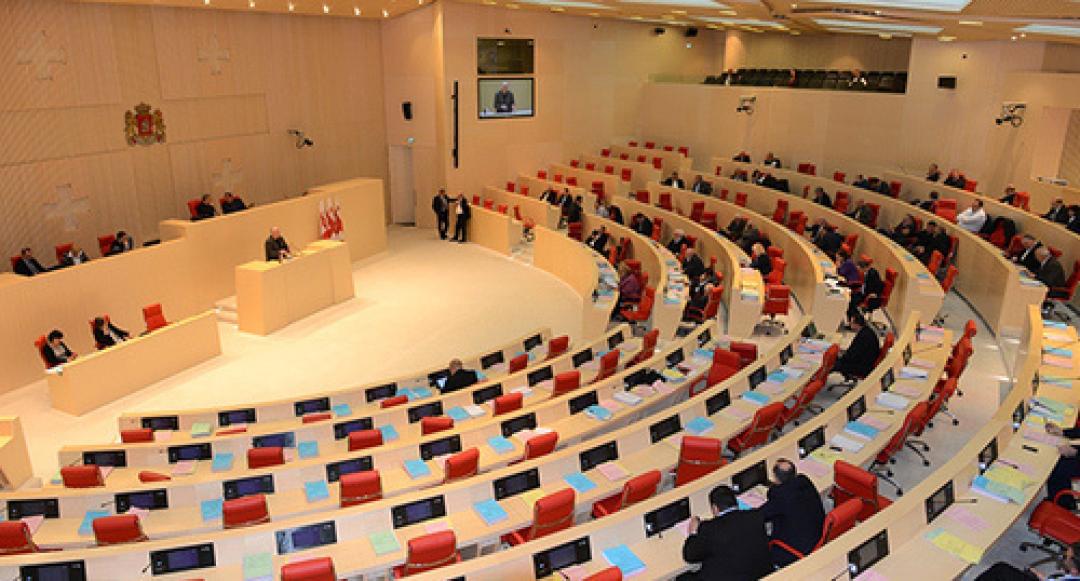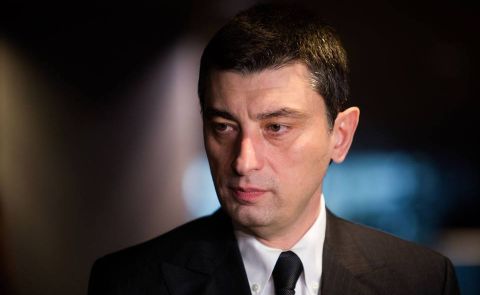
Controversy in Georgia: Ruling Party Slams Foreign Funded NGOs and USAID

On January 20, during a special briefing at the Georgian Parliament, Speaker Shalva Papuashvili vehemently criticized what he described as a widespread campaign of disinformation and hysteria. He asserted that there were premeditated and coordinated attacks targeting the Church and its followers. Papuashvili warned that these actions might lead to irreparable harm to civic peace, suggesting they were reaching a dangerously high level.
The Speaker's comments were in reference to the controversy that erupted following the discovery of an icon in Tbilisi's Holy Trinity Cathedral, which bore Stalin's image and was reportedly presented by leaders of a nativist, anti-Western political party. Papuashvili framed the public outrage as an unjustified assault on the Church, deliberately omitting the specific cause of the outcry.
Papuashvili sharply criticized SovLab, an NGO researching Georgia's Soviet history, particularly targeting its project manager, Giorgi Kandelaki. Kandelaki had initially publicized the Stalin image on the icon in the Sameba church on Facebook, which Papuashvili saw as fomenting the controversy. He expressed concern over the involvement of civil society organizations like SovLab in these matters.
Additionally, the Speaker singled out Beka Mindiashvili, head of the Tolerance Center at the Public Defender's Office, accusing him of being a prominent figure in this campaign and showing hostility towards the Georgian Orthodox Church. He questioned the legitimacy of Mindiashvili's office, claiming it was falsely using the Public Defender's Office's name while being funded by USAID's "Unity through Diversity" program [Note: This program is run by the UN Association of Georgia, which is also the parent organization of Civil.ge].
In response to these allegations, the Public Defender of Georgia, Levan Ioseliani, clarified that the Tolerance Center operates independently from his office and has its own funding sources. Therefore, he cannot be held accountable for statements made by the head of the Center.
Following the escalation of the controversy over Stalin's image in the Holy Trinity Church, the Public Defender also commented on the matter, stating his disapproval of Stalin’s depiction in the church and condemning the defacement of the icon. However, he emphasized the importance of upholding freedom of expression, even in the face of disagreeable actions.
Papuashvili also revisited his previous criticisms of USAID, implicating the organization in funding controversial programs in Georgia and calling for clarity and responsible action from its leadership. He contended that many NGOs in Georgia are politically influenced and financed by foreign funds, which he viewed as propaganda.
In light of these events, Papuashvili reiterated the need for transparency in funding civil society organizations (CSOs) and lamented the lack of legislation governing foreign funding transparency. He referenced the draft law on this subject, initially passed but later withdrawn due to public protest. Finally, he urged the donor community to ensure their contributions do not support projects or individuals that contradict shared human rights values and contribute to societal radicalization.
The USAID representative office in Georgia responded to Shalva Papuashvili's statement. It stated that they have constant, open, and transparent communication with the Georgian government on how their programs support Georgia's Euro-Atlantic aspirations.
"The US government, through USAID, as part of the country's support and for the benefit of Georgia, works with many organizations to support tolerance. We have constant, open, and transparent communication with the Georgian government regarding how our programs support Georgia's Euro-Atlantic aspirations," the organization said.
See Also


Russia Begins 24/7 Radiation Monitoring in Dagestan After Iranian Nuclear Incident

How Do Caucasus States React to Israel-Iran War?

Weekly Brief on Military Situation in the South Caucasus (9–15 June 2025)

Former Georgian PM Gakharia to Face Prosecution

